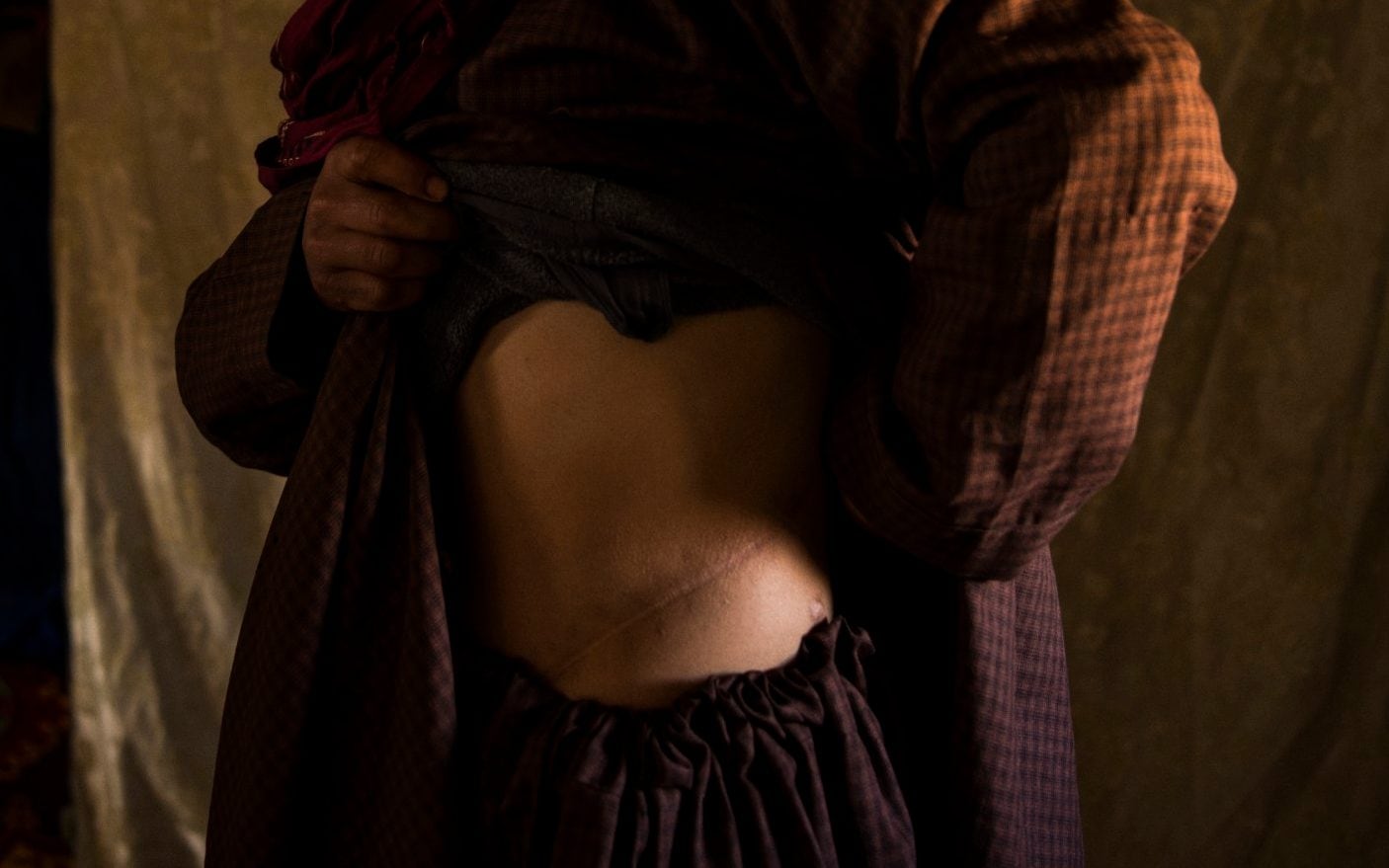Kenya may have become an organ trafficking hub matching wealthy foreigners with those desperate enough to sell their kidneys for cash, a government taskforce has admitted.
An inquiry into the country’s top kidney transplant hospital found dozens of men from Azerbaijan had donated organs, while dozens of Israeli men travelled to receive transplants at the same facility.
Paperwork at the hospital was woefully inadequate, suggesting legal safeguards may have been deliberately flouted.
An 18-member health department taskforce has now recommended an inquiry to see if four senior Indian doctors at the Mediheal Hospital had broken organ trafficking laws.

The three-month probe was ordered after German media reports alleged foreign transplant tourists at the hospital in Eldoret were paying up to £150,000 ($200,000) to receive transplants.
Poor donors were allegedly selling organs for as little as £3,000.
The Kenyan investigation is the latest to spotlight an international black market preying on those desperate enough to sell their organs, by matching them with wealthy recipients and carrying out transplants at unscrupulous private hospitals.
Two years ago, one of the world’s biggest private hospital groups was embroiled in a ‘cash for kidneys’ racket after a Telegraph investigation showed desperate villagers from Myanmar were being flown to a prestigious Delhi hospital and paid to donate their kidneys to rich Burmese patients.
Middlemen said they were able to use forged documents to circumvent a ban on strangers donating organs, and make it look like the donor and recipient were related.
The Apollo Hospitals Group denied any wrongdoing.
Globally, one-in-10 transplanted organs have been trafficked, estimates suggest.
In 2021, dozens of villagers in Western Afghanistan near the Iranian border revealed they were selling their organs for transplant at a private hospital in Herat.
A visited to one poor Herat suburb where elders said at least 32 people had sold kidneys, as poverty combined with the desperation of those needing transplants to create a thriving black market. Donors showed off their surgical scars and said they had received around £2,700. Many said they had subsequently fallen ill and were too weak to work.
The hospital again denied any wrongdoing.
The Kenyan taskforce – whose report was published on July 22 – found suspicious transplant statistics at the hospital revealed “Kenya’s possible role as a significant organ trafficking hub”.
Under Kenyan law, organ donations are allowed to relatives or for altruistic reasons, but not for money.
While most donors and recipients were Kenyan, data showed the hospital had seen 62 Israeli’s receive transplants from 2018, almost all of them men, but only 10 Israeli’s act as donors.
By contrast, there had been 50 Azeri donors, again almost all of them men, and one Azeri recipient.
The imbalance was evidence of “the classic exploitation model where organs flow from poorer to richer nations”, the 331-page investigation said.
Poor paperwork also meant the nationality of more than a fifth of donors and of recipients had never been recorded.
The lack of paperwork suggested “either gross negligence in record-keeping or deliberate obfuscation of illegal activities”.
Investigators also raised doubts about the “authenticity and consistency of signatures,” on paperwork.
The report said there were “alarming disparities in payment patterns that raise significant ethical concerns about potential organ commercialisation”.
When investigators tried to call recipients to check if they were related to the donors, the recipients frequently hung up.
One hospital whistle-blower earlier this year told German media that the buying and selling of transplants had begun years earlier.
They claimed recipients at first came from Somalia and donors from Kenya, but later recipients had increasingly come from Israel and then Germany.
Donors for these well-paying customers were allegedly flown in from countries including Azerbaijan, Kazakhstan or Pakistan.
Donors were asked to sign documents claiming they were relatives to recipients they never met, according to the joint investigation by Deutsche Welle, ZDF and Der Spiegel.
Kenya’s investigation found the hospital was so busy that during one 14-day period in December 2024, a single surgeon and a single anaesthetist operated on 24 patients.
Four senior staff should be investigated “for their potential criminal involvement in organ trafficking and for possible violations of national transplant laws and ethical standards,” the investigation said.
Dr Mishra, the hospital chairman and director, this week strongly denied any wrongdoing and said the taskforce report was malicious and lacking factual basis.
He also rejected the original German media reports, saying they were false.
He told a press conference: “The medical facility is not involved in donor selection, transaction, or any form of influence, pressure, bribing, or commercialisation. We do not even suggest donors to patients.”
Dr Mishra is an Indian-born Kenyan who has been an MP and is said to be on good terms with the president William Ruto.
The president earlier this year suspended Dr Mishra from his role as chairman of Kenya BioVax Institute, when the media allegations first emerged.
Kenya’s health ministry originally commissioned an investigation into Mediheal Hospital two years ago and reportedly found that donors and recipients were often not related and almost all procedures were paid in cash. That investigation reportedly recommended that “the allegation of organ trafficking must be investigated by relevant authorities”.
Yet, the 2023 report was never made public, and no action was taken.
Mediheal Hospital did not respond to Telegraph requests for comment.